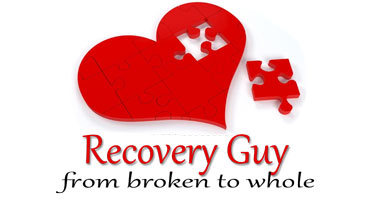
One of the most important things we will ever do in recovery is to understand, identify and avoid triggers. If this is not accomplished early on, relapse is likely unavoidable. This is easier said than done. It does not reduce the importance, matter of fact, it highlights how important it is. Let’s start out by defining a trigger.
Quite simply, a trigger is a person, place, thought or event that can set into motion a response. For the sake of this discussion, we will consider the trigger a negative. You have heard the tried and true phrase “if it were easy everyone would be doing it.” The same thing is true when applied to today’s blog. This post at The Ranch at Dove Tree identifis 5 areas that they found necessary to remove or negate the negativity that often arises because of triggers that can sabotage our recovery. I have listed them and I will comment on them and their importance.
- Identify Your Personal Triggers First
Triggers are a universal mechanism that can change specifically with individuals. A trigger for one person may not be the trigger for the next person. Certain triggers are common, such as changing old playgrounds and old playmates. They can differ because old playgrounds or playmates for one may not carry the same significance to another. Having said that, the best way to prevent something from occurring is to know what it looks like. - Avoid Stress
Stress reduction and the avoidance of it does not occur by accident. If a person is avoiding stress that used to affect them, it is likely because they are implementing strategies and techniques that allow them to find rest that previously would have avoided them. These new-found life responses often mean when we identify a trigger we neutralize its ability to promote a negative response. - Pull in Others for Help
Soliciting help from other people is so powerful when it is the right person. So many people have traveled this recovery journey before us. Many of them have proven methods that we can often apply to our own live. This can help reduce an opportunity for a trigger to provedestructive. Even if we must reformat their method to best fit our personality or circumstance it can be an effective jumping all place for us to get a start. - Stay Busy and Motivated
It has been said “an idle mind is the devil’s workshop.” Staying busy is a tricky thing because we don’t want to mistake activity for accomplishment. If it is a busyness that builds in us goodquality character and habits it will certainly lead to a positive motivation which would help negate or remove the trigger and its volatility. Let’s try to find activities that help promote mental, emotional, physical and spiritual health. It is within these four dimensions that will make staying busy very productive and will continue to motivate us into positive thinking that could promote positive behavior. - Keep Learning
One of the most exciting things about recovering from some very challenging and destructive things is that we are never finished. I need to keep a learning. Learning helps stimulate us and deepens our understanding of what we need to do to maintain our recovered position, it also serves as continued immunity against future relapses. If there’s anything that I know about addiction and recovery is that it can repackage itself. If we do not continue to learn how to understand, identify and subsequently avoid triggers we are likely to, once again, suffer from their destructive nature.
I hope this breakdown helped. Please continue go to www.recoveryguy.org for the most current blogs, podcasts and recovery information that can help you along your way.
